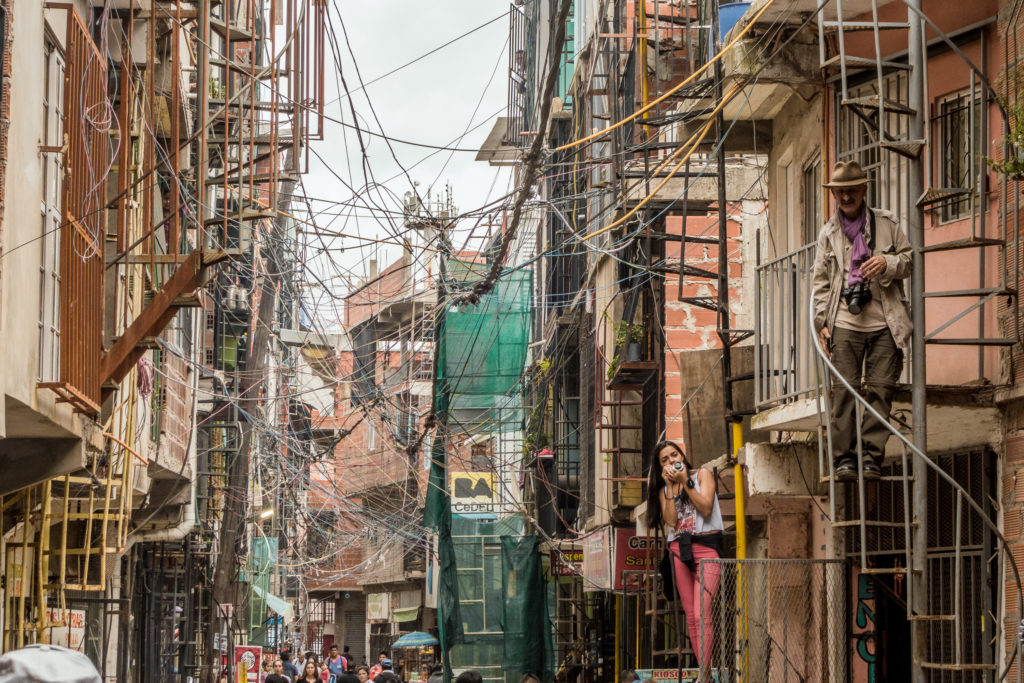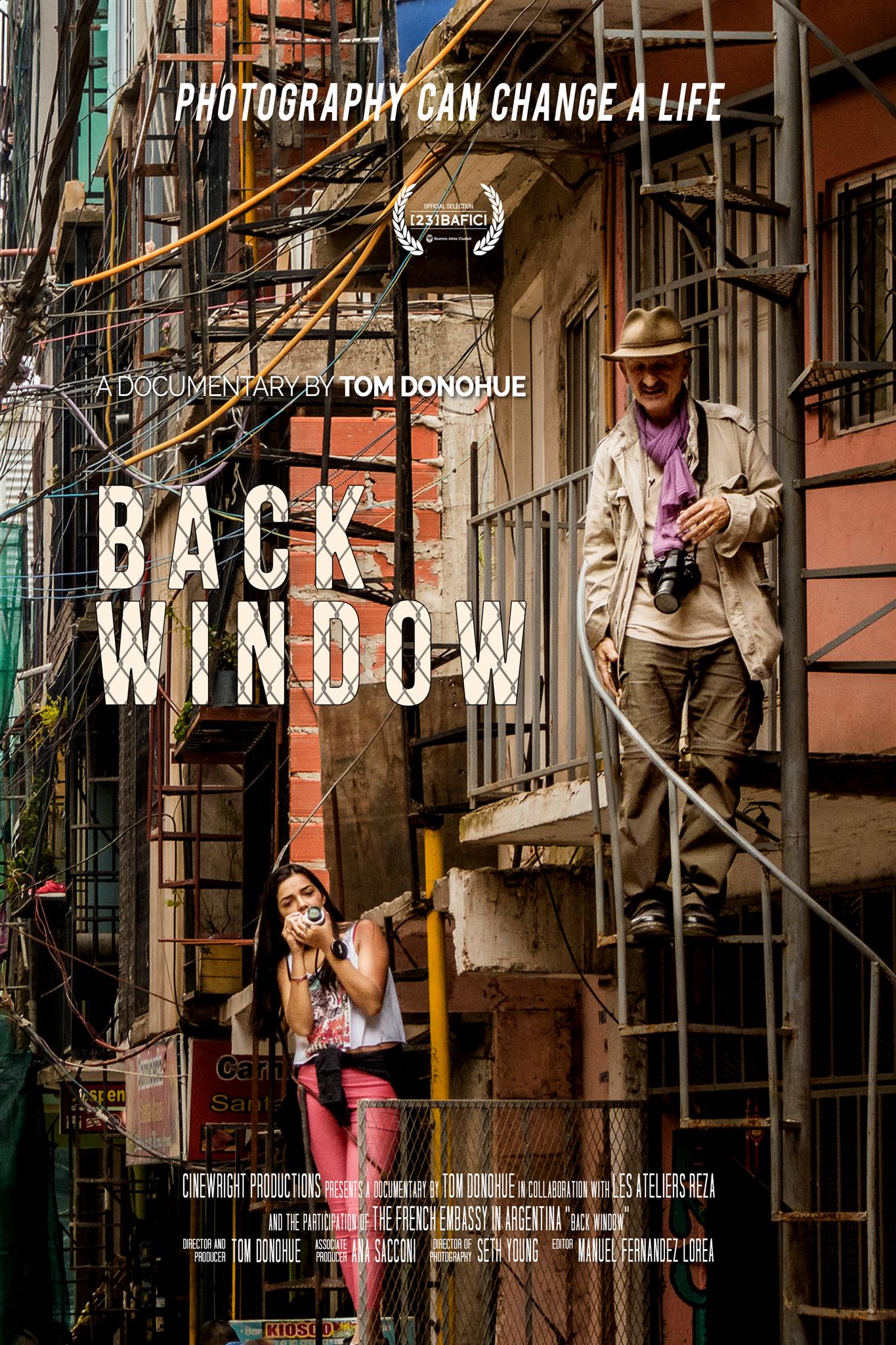Thirty Kids,
Thirty Cameras,
an inside view on an infamous neighborhood:
back Window
“Peace Correspondent” Reza Deghati would like to change the world with his photographs. However, because not every tragedy nor humanitarian cause is within reach of his lens, Reza has dedicated much of his life to teaching local people how to tell their local stories.
In a world full of chaos, Reza chose a slum in Buenos Aires as the site for his latest workshop. Why? Because even in a time of “inclusion” where any gender, race or sexual orientation is welcome, there is no place at the table for the poor. The youths in Reza’s workshop were born on the wrong side of the tracks, out of sight and out of mind in a barrio known only for its drugs, violence and gangs.
These are the forgotten people. Reza’s goal is to give them the tools to change that.
Back Window Series
The life changing effects of photography in the Barrio 31 is the topic of the first in a series of six half-hour documentaries. Each episode follows a different well-known photographer who brings their photographic talents to a community on the verge of a breakdown. Local teenagers are each gifted a camera and intensive instruction. The series follows the youths as they learn how to capture an image and share their world.
The experienced photographers know first hand the transformative power of an awakened passion for photography. Yet, the workshop’s goal is deeper: these students are our eyes to a people in crisis.
Hope In six parts
The Slums of Buenos Aires, Argentina
Reza’s premise that local people need to be prepared to tell their local stories became apparent in this pilot for the “Back Window” series. Just as the production entered the editing room, the world entered into Covid 19 Lockdown. Reza’s alumni were among the only trained photographers in the quarantined barrio prepared to capture the historic moment.
A search for home outside Paris, France
100,000 Ukrainian refugees will arrive in France. Many of them will be children. This is just the start of their journey from war to normalcy. Photography can help express the un-expressible. The viewfinder will be their tool to explore a new home.
Families in crisis in Appalachia, USA
Photographers from “away” have a long tradition of visiting the rural hamlets of the Appalachian Mountains to document a distinct way of life. Now the opioid crisis has put its own mark on the landscape. Addiction is taking down individual lives and with them whole families and communities are destroyed. These photos are taken by children trying to understand the madness of their elders.
Former Children Soldiers alive in Rural, Nigeria
Children are used as pawns to rage wars in a number of countries. They are forced to partake in violence against their own villages so they can never return home. Humanitarian groups have been able to free some of these youths from the hold of both Government and rebel troops. Photographers like Reza use photography to help the children overcome the traumas of their earlier lives.
A tale of Two Cities in Baltimore, USA
Depending on one’s point of view, the violence that erupted in Baltimore in 2015 was either a riot or an uprising. However all would agree that violence has since skyrocketed. Baltimore now has the nation’s second highest homicide rate. Photos may not solve the problems of life in inner cities. But a photo could lead the two sides to an understanding.
Off the Reservation in Quebec, Canada
A Cree Indian tribe has chosen the snow covered forest of Northern Quebec over life on the reservation. It is a return to the ancestral ways. The change of scenery may not eliminate the scourges of modern Indian life: unemployment, segregation, drug abuse, etc. But what the kids photos reveal is a deep connection to what was once a way of life.

Faculty presentation Maine Media Workshops + College
Director Tom Donohue gives a Faculty Talk on the making of Rear Window during Covid quarantine.
Reza: Shooting Back
“I first met Reza in August of 2001. National Geographic Television commissioned me to create a film about his life already filled with humanitarian service. On the first day of shooting, it should come as no surprise, Reza was launching a media service to help local people get their stories out. What was surprising was that the country in question was Afghanistan. In the summer of 2001, Afghanistan was far from the top of the news cycle. Yet, Reza’s message was prescient: the West is ignoring Afghanistan at its own peril.
The next month, the Twin Towers in New York fell and the U.S. entered its longest running war. Soon after, I joined Reza in Kabul with my camera to film the construction of the first Afghan Media Center.”
~ Tom Donohue
Producer, Writer, Cinematographer and Editor
Reza: Shooting Back
Emmy Nominated for "Outstanding Artistic & Cultural Achievement"
Starring Roles
COMING SOON THIS WINTER 2021
- 00Days
- 00Hours
- 00Minutes
- 00Seconds



